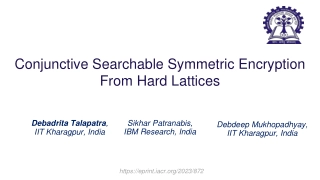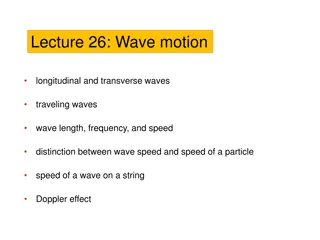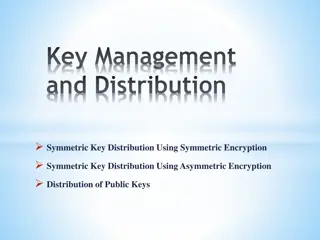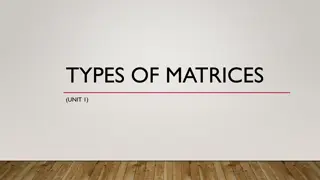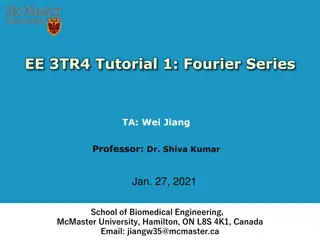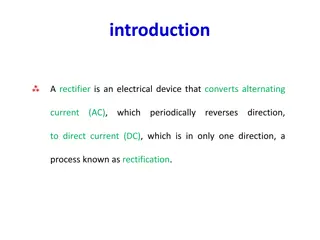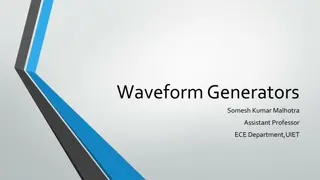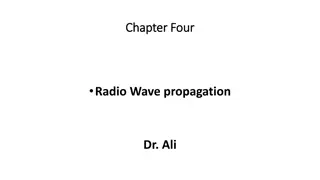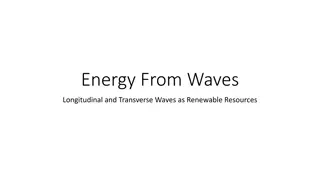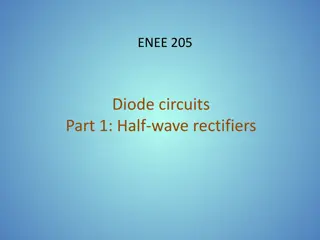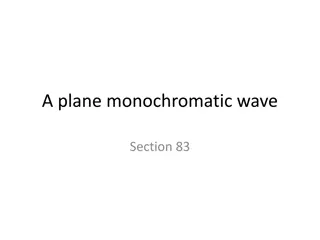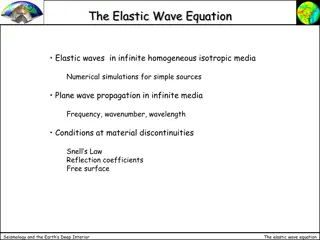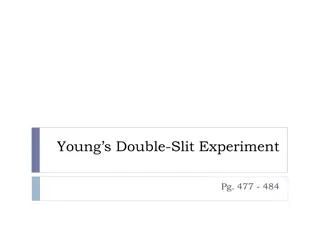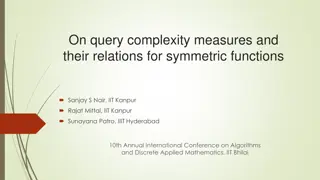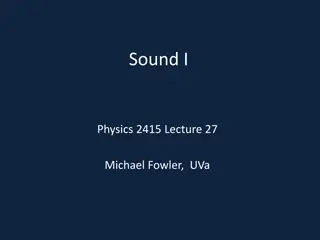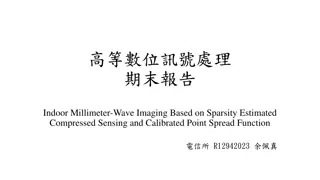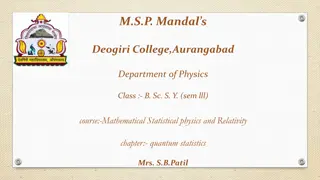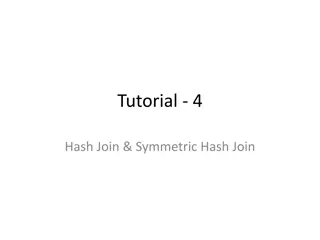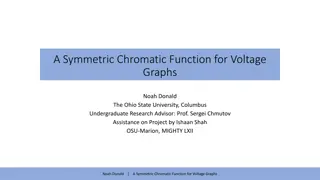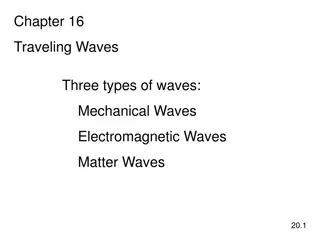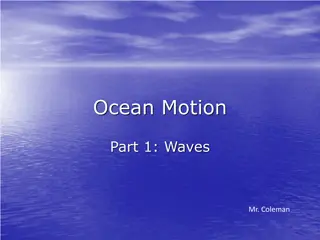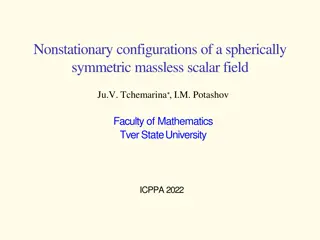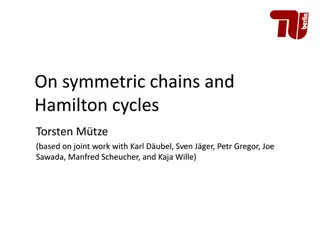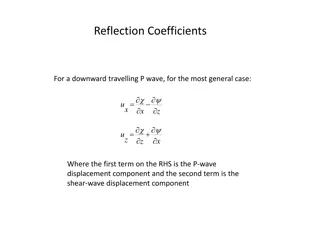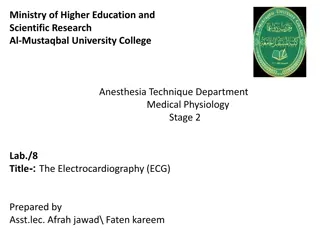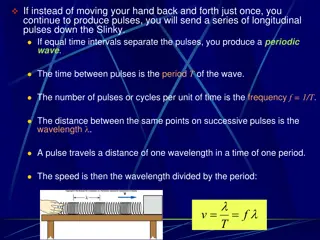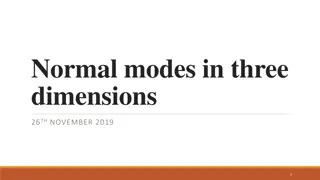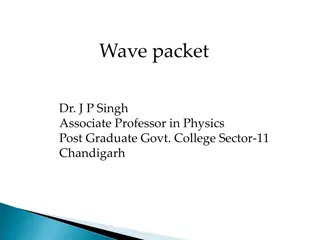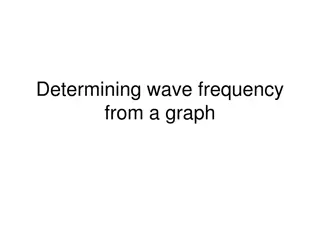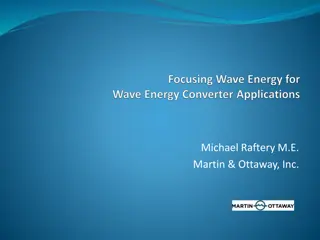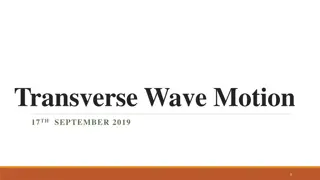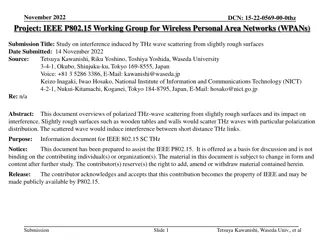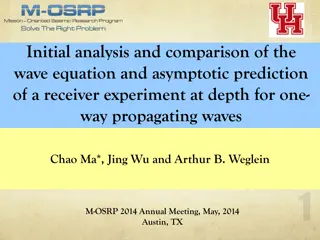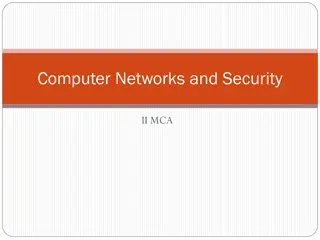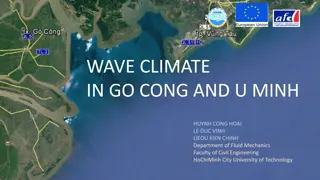Understanding Waves, Light, & Sound: Vocabulary and Concepts
This chapter covers essential vocabulary and concepts related to waves, light, and sound, including amplitude, crest, diffraction, Doppler effect, electromagnetic wave, frequency, interference, longitudinal wave, mechanical wave, medium, photon, pitch, reflection, refraction, sound wave, standing wa
8 views • 21 slides
Conjunctive Searchable Symmetric Encryption From Hard Lattices
Discusses outsourcing storage and computing, encrypted data computing, and searchable symmetric encryption for data security in cloud environments. It touches on topics like data confidentiality, user revocation, and performance-oriented implementations.
2 views • 30 slides
Hydrologic Modeling Methods in HEC-HMS: A Comprehensive Overview
Explore the transformative methods within HEC-HMS hydrologic modeling, including unit hydrograph derivation, excess precipitation transformation, hydrograph illustration, surface transform methods, and concepts like the kinematic wave and 2D diffusion wave. Learn about the unit hydrograph, kinematic
0 views • 41 slides
Understanding Wave Motion: Longitudinal and Transverse Waves
Explore the fundamentals of wave motion including longitudinal and transverse waves, wave length, frequency, speed, and the Doppler effect. Learn about different types of waves, their characteristics, and the distinction between wave speed and the speed of a particle. Discover the properties of wave
2 views • 18 slides
Key Management and Distribution Techniques in Cryptography
In the realm of cryptography, effective key management and distribution are crucial for secure data exchange. This involves methods such as symmetric key distribution using symmetric or asymmetric encryption, as well as the distribution of public keys. The process typically includes establishing uni
1 views • 27 slides
Understanding Matrices: Types, Definitions, and Operations
Matrices are ordered arrays used to express linear equations. Learn about types, definition, equality, and operations like addition, subtraction, and multiplication. Discover matrix equality and the transpose of a matrix, including symmetric and skew-symmetric matrices.
1 views • 17 slides
Designing Low-Pass Filter for Square Wave Harmonic Suppression
This tutorial discusses the design of a low-pass filter to suppress harmonics in the output of a square wave signal. The goal is to achieve at least 32 dB attenuation of any harmonics relative to the fundamental sinusoid at 5 kHz. The solution involves analyzing the square wave, determining the nece
0 views • 18 slides
Understanding Rectifiers: Types and Working Principles
A rectifier is a crucial electrical device that converts AC to DC, allowing current to flow in only one direction. Explore the different types of rectifiers like half-wave and full-wave, along with their working principles and efficiency considerations. Dive into the explanation of rectification pro
0 views • 15 slides
Understanding Waveform Generators in Electronic Circuits
Waveform generators, such as square wave oscillators and triangular wave generators, play crucial roles in electronic circuits. Square wave oscillators use capacitors and op-amps to create square wave outputs through charging and discharging processes. On the other hand, triangular wave generators u
1 views • 11 slides
Understanding Radio Wave Propagation in the Ionosphere
Radio wave propagation in the ionosphere is influenced by factors such as the radio refractive index and absorption of radio wave energy. This chapter delves into the interaction of radio waves with the ionosphere, discussing concepts like the electromagnetic spectrum nomenclature and the frequency
0 views • 15 slides
Harnessing Wave Energy: A Renewable Resource for Sustainable Power Generation
Utilizing the kinetic energy of ocean waves through transverse and longitudinal wave interactions, wave energy presents a promising renewable resource for electricity generation. This form of renewable energy, akin to wind power, involves converting the motion of waves into electrical power by deplo
0 views • 16 slides
Evolution of Light Theory: From Wave Theory to Quantum Theory
At the turn of the century, the discovery of the photoelectric effect challenged the wave theory of light, leading to the development of the quantum theory by Max Planck and Albert Einstein. This new theory introduced the concept of discrete energy units known as quanta, bridging the gap between wav
1 views • 62 slides
Understanding Diode Circuits: Half-Wave Rectifiers and Full-Wave Rectifiers
Diode circuits play a crucial role in converting AC signals to DC signals. This article covers the basics of diodes, half-wave rectifiers, and full-wave rectifiers. It explains the functioning of unfiltered and filtered rectifier circuits, highlighting the differences in ripple effects and voltage r
6 views • 18 slides
Understanding Complex Wavevectors in Homogeneous Media
Exploring the concept of complex wavevectors in a homogeneous medium, this content delves into monochromatic waves, Maxwell equations, wave propagation, and the relationship between material properties and wave behavior. It discusses how the complex nature of wavevectors impacts fields, damping, and
0 views • 17 slides
Understanding Elastic Wave Equations in Seismology
Explore the fundamentals of elastic wave equations for seismology, including topics such as plane wave propagation, reflection coefficients, and wavefield simplifications using curl and div operators. Learn about P-waves, shear waves, and elastodynamic potentials in the context of infinite homogeneo
0 views • 31 slides
Understanding Young's Double-Slit Experiment and Interference Patterns
Thomas Young's double-slit experiment in the late 1700s provided evidence of light behaving as a wave, showcasing interference patterns. This experiment challenged the particle theory of light and supported the wave theory. The interference patterns observed helped scientists grasp the wave nature o
0 views • 27 slides
Quantum Query Complexity Measures for Symmetric Functions
Explore the relationships between query complexity measures, including quantum query complexity, adversary bounds, and spectral sensitivity, in the context of symmetric functions. Analysis includes sensitivity graphs, the quantum query model, and approximate counting methods. Results cover spectral
0 views • 19 slides
Understanding Sound Waves: Exploring Wave Phenomena in Physics
Delve into the intricacies of sound waves in Physics with a focus on standing waves, boundary conditions, amplitude variations, and wave interactions. Explore concepts like harmonic wave addition, pulse encounters, and outcomes at fixed and free ends of a string. Discover how different scenarios aff
0 views • 22 slides
Sparse Millimeter-Wave Imaging Using Compressed Sensing and Point Spread Function Calibration
A novel indoor millimeter-wave imaging system based on sparsity estimated compressed sensing and calibrated point spread function is introduced. The system utilizes a unique calibration procedure to process the point spread function acquired from measuring a suspended point scatterer. By estimating
2 views • 26 slides
Development of Quantum Statistics in Quantum Mechanics
The development of quantum statistics plays a crucial role in understanding systems with a large number of identical particles. Symmetric and anti-symmetric wave functions are key concepts in quantum statistics, leading to the formulation of Bose-Einstein Statistics for bosons and Fermi-Dirac Statis
1 views • 15 slides
Understanding Hash Joins and Symmetric Hash Joins in Database Queries
Hash joins and symmetric hash joins are key techniques used in database queries to efficiently access and combine data from multiple tables. Hash joins load candidate records into hash tables for quick probing, while symmetric hash joins maintain two hash tables with two hash functions. Despite thei
0 views • 8 slides
Symmetric Chromatic Function for Voltage Graphs
Exploring the concept of a Symmetric Chromatic Function (SCF) for voltage graphs involves proper coloring conditions for edges and vertices, edge polarization functions, and decomposing voltage graphs into disconnected and connected squiggly graphs. The SCF allows for determining the number of ways
0 views • 7 slides
Understanding Traveling Waves: Types, Properties, and Equations
Explore the world of traveling waves, including mechanical, electromagnetic, and matter waves. Learn about transverse and longitudinal wave motion, the speed of waves in strings, wave frequency, wavelength, and speed relationships, as well as wave equations for non-repeating waves over space and tim
1 views • 30 slides
Investigating Ship Wakes and Wave Patterns
Explore the visual similarities between ship wakes and Mach cones, considering various parameters such as boat velocity and length. Delve into wave equations, dispersion effects, and experimental results while addressing questions on water speed, wake formation, and wave models. Analyze the correlat
0 views • 8 slides
Understanding Ocean Waves and Their Dynamics
Exploring the science behind ocean waves, this resource delves into why waves occur, the components of a wave, how water moves within a wave, and the effects of waves hitting a beach. From defining waves to discussing wave characteristics, this content provides valuable insights into the fascinating
0 views • 13 slides
Nonstationary Configurations of a Spherically Symmetric Scalar Field
Action and stress-energy tensor, Einstein-Klein-Gordon equations, and method for constructing nonstationary configurations of a spherically symmetric scalar field are discussed in this study. The behavior of the characteristic function allows interpretations such as black holes, wormholes, or naked
0 views • 14 slides
Exploring Symmetric Chains and Hamilton Cycles in Graph Theory
Delve into the study of symmetric chains, Hamilton cycles, and Boolean lattices in graph theory. Discover the relationships between chain decompositions, Boolean lattices, and edge-disjoint symmetric chain decompositions, exploring construction methods and properties such as orthogonality. Uncover t
0 views • 15 slides
Understanding Reflection Coefficients in Wave Propagation
Reflection coefficients play a crucial role in wave propagation, particularly for P and shear waves. The equations governing reflection coefficients provide insight into wave behavior at boundaries and interfaces. By examining the conditions and special cases, we can understand how these coefficient
0 views • 33 slides
Understanding Electrocardiography (ECG) in Medical Physiology Stage 2 Lab
Electrocardiography (ECG) is a vital tool for recording the electrical activities of the heart muscle. This process involves detecting depolarization and repolarization through various waves such as P-wave, QRS complex, and T-wave. Understanding ECG components like PR segment, ST segment, and U-wave
0 views • 10 slides
Understanding Wave Properties and Standing Waves in Physics
Exploring the concepts of periodic waves, superposition, and standing waves in physics using examples such as a Slinky, two waves traveling in opposite directions, and a guitar string. Learn about wave speed, frequency, wavelength, nodes, antinodes, and the impact of tension on wave propagation. Dis
1 views • 17 slides
Understanding Standing Waves in Three Dimensions
Exploring the concepts of normal modes, wave equations, and standing waves in three-dimensional spaces, including the derivation of wave functions within rectangular enclosures and the calculation of normal mode frequencies. The content discusses boundary conditions, particular wave functions, and d
0 views • 19 slides
Understanding Wave-Particle Duality in Physics
Explore the complex relationship between particles and waves in physics, as particles exhibit wave-like behavior described by wave packets rather than single waves. Delve into the concept of group velocity and phase velocity, and how a particle's behavior is represented by a wave function. Uncover t
0 views • 12 slides
Understanding Wave Frequency and Periodicity Graphically
This instructional material provides a visual guide on determining wave frequency and period from graphs displaying wave cycles over time. It explains concepts such as the relationship between cycles and time, measuring frequency in Hertz (Hz), understanding wave periods, and calculating frequencies
0 views • 25 slides
Innovative Wave Energy Technology by Michael Raftery M.E. Martin & Ottaway, Inc.
Groundbreaking wave energy technology developed by Michael Raftery M.E. Martin & Ottaway, Inc. utilizes submerged platforms to focus waves, resulting in a significant increase in power density. The process conservatively manages water depth changes, ensuring the conservation of mass, energy, and pow
0 views • 6 slides
Understanding Transverse Wave Motion in Physics
Explore the concepts of transverse wave motion, velocities in wave motion, group velocity, dispersion, and the transverse wave equation on a string. Visual examples and explanations enhance the understanding of these fundamental principles in physics.
1 views • 30 slides
Study on THz Wave Scattering from Slightly Rough Surfaces: Interference and Implications
Overview of polarized THz wave scattering from slightly rough surfaces such as wooden tables and walls. The document discusses the induced interference between short-distance THz links and presents a model of electromagnetic wave scattering with examples of experimental and numerical results. Potent
0 views • 17 slides
Analysis and Comparison of Wave Equation Prediction for Propagating Waves
Initial analysis and comparison of the wave equation and asymptotic prediction of a receiver experiment at depth for one-way propagating waves. The study examines the amplitude and information derived from a wave equation migration algorithm and its asymptotic form. The focus is on the prediction of
0 views • 23 slides
Understanding Network Security Principles and Techniques
Explore the fundamental concepts of network security, including issues of confidentiality, integrity, and non-repudiability. Learn about the challenges of securing networks and the types of attacks that computer systems face. Dive into basic security techniques like hashing and symmetric key cryptog
0 views • 36 slides
Study on Wave Climate in Go Cong and U Minh Regions
This study focuses on analyzing the wave climate in Go Cong and U Minh areas in Vietnam using the Telemac-Tomawac wave model. The research covers the simulation of wind-wave characteristics in the East Sea and West South Sea over a 3-year period. Data input, model setup, calibration, and computed do
1 views • 27 slides
Competition Among Asymmetric Sellers with Fixed Supply - Research Overview
This research focuses on competition among sellers with fixed supply in markets for ads, where publishers determine slot allocations to advertisers based on given budgets. The study explores how publishers can maximize revenue by choosing allocation policies strategically, considering symmetric adve
0 views • 21 slides

